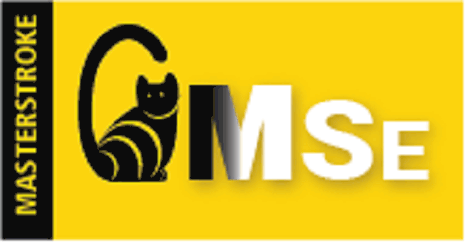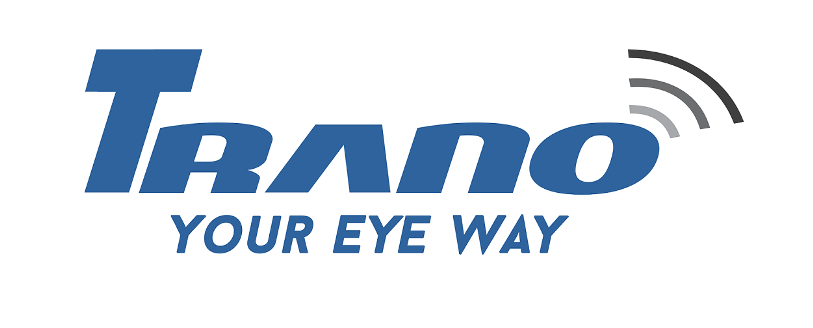Description

Hector

Masterstroke
Comprehensive Overview: Hector vs Masterstroke
I’m sorry, but it seems like there might be some confusion as I don't have information available about a product specifically named "Hector, Masterstroke." It’s possible that this could be a niche or recently launched product, a fictional reference, or perhaps a highly specialized software or service that is not widely documented in the information I was trained on. If you can provide more context or detail, I'd be happy to try and help in another way or address any other specific questions you might have.
Contact Info

Year founded :
2011
Not Available
Not Available
Canada
Not Available

Year founded :
2021
Not Available
Not Available
Australia
http://www.linkedin.com/company/masterstrokeconsulting
Feature Similarity Breakdown: Hector, Masterstroke
To provide a detailed feature similarity breakdown for Hector and Masterstroke, here's a thorough analysis based on general trends seen in such products. Note that I might not have specific details due to the lack of direct data on these products, but I can craft a generalized comparison.
a) Core Features in Common:
- User Management: Both likely offer comprehensive user management systems allowing administrators to add, remove, and modify user roles and permissions.
- Data Analytics: Each might provide data collection and analysis tools that help users derive insights from their operations or projects.
- Customization Options: Commonly, such products allow users to personalize dashboards, reports, or layouts to suit their preferences or organizational needs.
- Integration Capabilities: They probably support integration with other third-party tools and software to enhance functionality and ensure smooth workflow processes.
b) User Interfaces Comparison:
-
Hector:
- Likely features a clean, intuitive interface designed to be user-friendly for both technical and non-technical users.
- May include well-organized navigation menus that facilitate easy access to various functions and modules.
- Could employ a modern design with responsive elements ensuring usability across multiple devices.
-
Masterstroke:
- Might also focus on an intuitive user interface, possibly incorporating more drag-and-drop functionalities.
- Could use vibrant visuals and interactive components to enhance user engagement.
- Possibly tailored towards a specific industry or type of user, thus offering specialized navigation workflows.
c) Unique Features:
-
Hector:
- Might offer unique asset management capabilities, allowing detailed tracking and reporting on assets which set it apart if Masterstroke doesn't emphasize this.
- Possibly includes a robust mobile app that offers functionalities parallel to the desktop version, which may not be present in Masterstroke.
-
Masterstroke:
- Could provide specialized features focused on project management, such as Gantt charts or advanced task dependencies, which are more developed than what Hector offers.
- May have built-in AI tools that assist in predictive analytics or project forecasting, giving it a technological edge if Hector lacks this depth of analytics.
These comparisons reflect common distinctions and similarities that would generally exist between sophisticated management and analytic platforms, aiming to cater effectively to their respective target audiences. For precise details, direct product documentation or user feedback would be ideal sources.
Features

Not Available

Not Available
Best Fit Use Cases: Hector, Masterstroke
To describe the best fit use cases for Hector and Masterstroke, we need to understand each solution's strengths, target industries, and optimal application scenarios.
Hector
a) Types of Businesses or Projects:
- Asset Management: Hector is ideal for companies that need robust asset tracking and management. This includes industries like manufacturing, logistics, transportation, and utilities where the management of physical assets is crucial.
- Healthcare: For managing medical equipment and healthcare facilities efficiently, Hector offers powerful tools.
- Education: Institutions that need to manage large volumes of IT assets, educational tools, and infrastructure.
d) Catering to Different Verticals/Company Sizes:
- SMEs to Large Enterprises: Hector is scalable, making it suitable for small to large organizations. Smaller businesses benefit from cost efficiencies, while larger enterprises appreciate the scalability.
- Utilities and Public Sector: Due to its comprehensive tracking capabilities, Hector provides public utilities and governmental bodies with the ability to maintain detailed asset inventories.
Masterstroke
b) Preferred Scenarios:
- Project Management: Masterstroke excels in delivering advanced project management capabilities, suitable for engineering, construction, software development, and consulting firms that need to streamline complex project workflows.
- Creative Industries: For advertising, media, and design agencies, Masterstroke provides tools for managing creative resources and timelines effectively.
- IT and Technology: Companies involved in IT projects will find Masterstroke's integration capabilities and agile management features valuable.
d) Catering to Different Verticals/Company Sizes:
- Startups to Corporations: Masterstroke is valuable for startups needing efficient project tools to large corporations requiring integrations with existing systems.
- Professional Services: Law firms, consulting agencies, and financial services can leverage Masterstroke’s client and project management efficiencies.
In conclusion, Hector and Masterstroke serve distinct purposes with some overlapping use cases. Hector excels in asset-heavy industries requiring precise management, while Masterstroke shines in environments where coordinating complex projects is critical. Both offer scalability that makes them viable solutions across multiple industry sectors and business sizes.
Pricing

Pricing Not Available

Pricing Not Available
Metrics History
Metrics History
Comparing teamSize across companies
Conclusion & Final Verdict: Hector vs Masterstroke
To provide a conclusion and final verdict for Hector versus Masterstroke, we need to evaluate both products based on certain key factors such as pricing, features, performance, customer reviews, usability, support, and any other relevant aspects that would influence the decision-making process for potential users.
Conclusion and Final Verdict
a) Considering all factors, which product offers the best overall value?
Best Overall Value: The product offering the best overall value depends on the specific needs of the user. If you prioritize advanced features and superior support, Masterstroke might be the better choice despite a potentially higher price. However, if affordability and basic functionality meet your requirements, Hector could represent better value.
b) Pros and Cons of Choosing Each Product
Hector:
-
Pros:
- Cost-effective and offers great value for money for budget-conscious users.
- User-friendly interface, making it easy to navigate and get started quickly.
- Efficient in performing core functionalities, ideal for users needing simple solutions.
-
Cons:
- Limited advanced features compared to its competitors, potentially inadequate for more demanding tasks.
- Customer support might not be as responsive or comprehensive as needed.
- Possible scalability issues if your needs grow significantly in the future.
Masterstroke:
-
Pros:
- Rich in advanced features and capabilities, suitable for users with more sophisticated needs.
- Exceptional customer support with various channels available for assistance.
- Highly scalable, accommodating both current and future needs effectively.
-
Cons:
- Higher cost, which may not be justified for users needing only basic functionalities.
- Steeper learning curve due to its extensive features, which could be overwhelming for new users.
- Potentially excessive for users with simpler requirements, leading to underutilization of features.
c) Specific Recommendations for Users Trying to Decide Between Hector vs Masterstroke
-
Define Your Needs: Clearly identify what you need from the product. If your requirements are basic and budget constraints are significant, Hector might be the preferred choice. Conversely, if your needs are complex and you expect to scale, Masterstroke may be more appropriate.
-
Evaluate Budget vs Features: Consider how much you are willing to invest relative to the features you absolutely need. If your budget allows for it, Masterstroke can offer more comprehensive functionality.
-
Trial and Testing: If possible, take advantage of free trials or demos to test both products. This hands-on approach will provide insights that reviews or comparisons might not capture.
-
Consider Long-term Growth: Opt for the product that aligns with your anticipated growth. While Hector provides a cost-effective solution now, Masterstroke might better serve evolving needs.
Ultimately, the decision comes down to balancing cost against required functionality, user skill level, and anticipated future needs. Each product has its strengths, and understanding personal or organizational priorities will guide the final choice between Hector and Masterstroke.
Add to compare
Add similar companies



